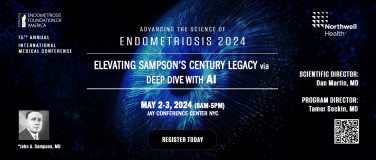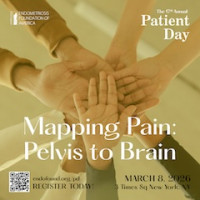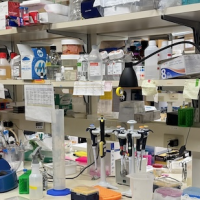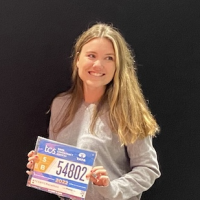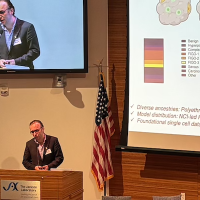
More than a decade ago, Ridhi Tariyal was searching for proactive, preventative tests that could answer questions about her current and future reproductive health. Unable to find them, even from her own doctor, she did something about it.
Tariyal is the founder of Oakland-based NextGen Jane, which uses menstrual blood to give women the answers Tariyal sought but couldn’t get. Tariyal was honored with the Innovation Award on May 3 in New York City at EndoFound’s Blossom Ball.
“I’m grateful to receive it. I think this organization is so special in what it does for the endometriosis community, from funding good science to raising awareness,” Tariyal said. “I know our lives are made appreciably easier when people are comfortable talking about infertility, endometriosis, pelvic pain, and menstrual disorders. EndoFound helps with that incredibly.”
Tariyal holds a B.S. in Industrial Engineering from Georgia Institute of Technology, an S.M. in Biomedical Enterprise from MIT, and an MBA from Harvard Business School. She started NextGen Jane in 2013, soon after a wellness visit to her doctor.
“I was 33 and trying to figure out the state of my reproductive health. I knew I wanted kids one day but probably not for at least five years, so I thought I should think about it proactively,” Tariyal said. “Questions I had ranged from ‘Will I have enough eggs?’ to ‘What will be their quality?’ to ‘What will be the state of my uterus?’ to ‘Do I have any underlying pathology that would motivate me to think about having kids sooner?’ I wanted to see what testing was available to give me information to influence my decisions.”
Her doctor, part of one of the premier women’s health organizations in the country, couldn’t and wouldn’t help her.
“They did not have the tools, which I was sympathetic to, but they also were very dismissive about the entire endeavor,” Tariyal said. “They wanted to know what problem I was trying to solve. I wasn’t coming in with any pain or a growth or a mass. They said they didn’t see a problem, so if I was worried about my future fertility, I should just have kids now.”
Tariyal continued to push for answers.
“I thought, ‘I’m just looking for information about my own body, so let me do some research about what tests are available so they could at least prescribe them to me,’” Tariyal said. “I went back to my doctor and said, ‘I know these aren’t great tests, but they will give me some information. Can you please order them for me?’ And she refused. She said testing should only be prescribed if it helps them [clinicians] make a clinical decision about how I’m going to be guided. I was so frustrated.”
From that, NextGen Jane was born.
“We’ve developed a menstrual data platform for characterizing molecular profiles of shed uterine lining as a means of developing noninvasive diagnostics and novel insights into how therapeutics could be impacting menstrual blood,” Tariyal said.
In the simplest terms and in relation to endometriosis, NextGen Jane collects tampons from women, sequences and analyzes the data from the menstrual blood, and uses that to try to determine if a woman may or may not have endometriosis.
“The intent is to get surgery or drug intervention for women who need it much faster than the seven to 10 years it takes on average for a woman with endometriosis to be diagnosed. We believe it will make a difference in their quality of life and possibly in their infertility status,” Tariyal said. “We don’t think people should be suffering with a condition for that long without knowing what it is. A faster, easier diagnosis is probably the number one mandate of the company.”
NextGen Jane has been conducting studies for years using thousands of tampons from women nationwide. While the studies are ongoing, Tariyal expects their service will be in the marketplace sometime next year.
“That would mean doctors would have the ability to order the test from NextGen Jane, and we would send a kit to the patient directly,” Tariyal said. “It would come back to our lab, we would sequence the material in the tampon, and return the test results to the doctor and patient and say, ‘This tampon looks more like someone who has endometriosis,’ or ‘This tampon looks more like someone who does not have endometriosis.”
In other words, it would provide a proactive answer to a reproductive health question, as Tariyal sought from her doctor long ago.
“I just wanted insight,” Tariyal said. “I get that medicine is hard and that sometimes there aren’t answers and there is uncertainty. But I couldn’t even get information. This will provide information.”
To learn more about NextGen Jane and participate in their studies, visit www.nextgenjane.com.




